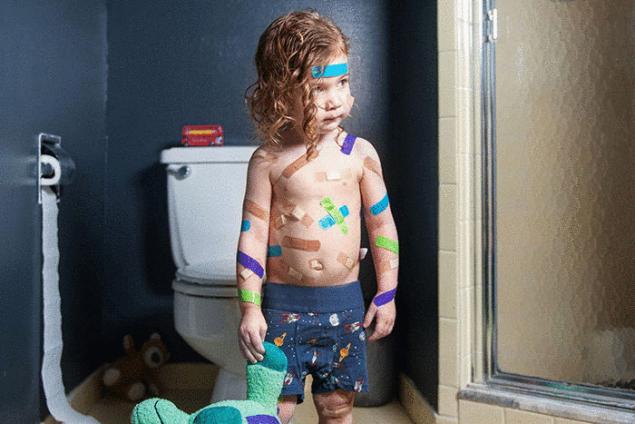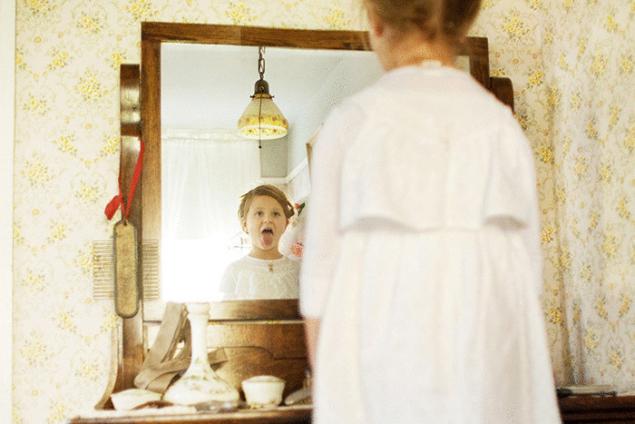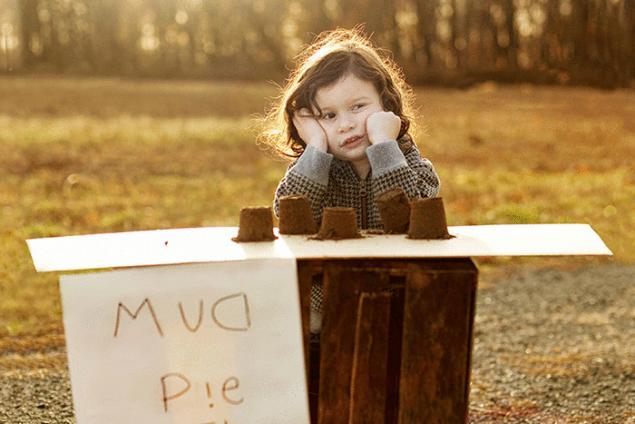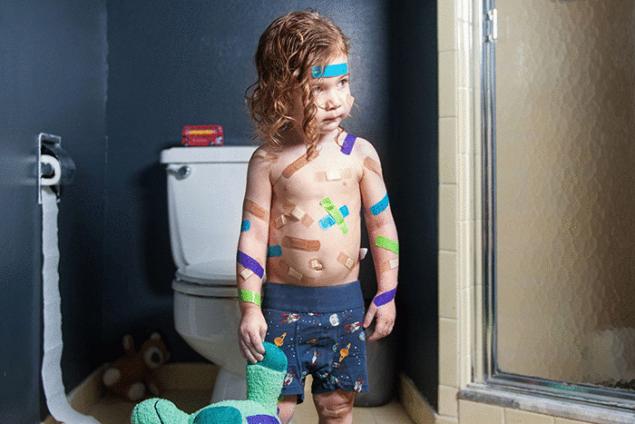604
The principles of adequate parenting: how to communicate effectively with the child
The child's personality develops gradually, but is built and exists on the basis of character. If you take the child for what he is, supporting his weaknesses and developing strong, any parents can achieve the desired goal: the child will be happy, successful, independent, etc. Published lecture adolescent psychologist Andrei Matveev, read in the framework of the "Urban lecture series", a joint project with the Department of culture of Moscow for refurbished cultural centres in residential areas

© Zoe Berkovic
Approach, which will be called "adequate parenting" is the upbringing of the child taking into account his psychological characteristics. How would you like to raise a child? Happy, purposeful, independent, friendly, harmonious, confident, successful, sociable, stress-resistant.
Drawing a parallel with the Navigator in the car, we can say that what you see your child in the future is your goal, you have to move. But to reach the goal, the Navigator must specify the point from which go. There are many books that describe how to achieve goals, how to raise your child independent, purposeful, self-confident, etc. but we rarely think how is your baby now. And if you do not understand exactly where you are right now, to get to this future will be difficult. For example, if you want to get to Sochi from different cities you there will be different ways to reach. The same with the child, depending on where it is, you differently would be to move towards this. Almost all of the desirable characteristics are characteristics of your child's personality, but he is not born a personality immediately.
In psychology, found that personality develops gradually, but is built and exists on the basis of character. It manifests itself very early, but still is not the child's personality. Before you educate a person, you need to understand what are the features of character of your child as they are manifested and how they influence the formation of personality. But different not only children but parents too. You read baby books, recommendations about how to develop the child, but sometimes they are very difficult to apply to individual children. In child and adolescent psychology, there are several options of typologies of character. And some of the types generally found in all versions.
Most often the child has several types of personalities, but generally they have features of two types. Each of the characters has their own strengths and weaknesses. The task of parents is to support the weaknesses of the child and to develop a strong quality. Any of the character types can lead to the desired goal in relation to your child. Anyone can be happy, successful, independent and etc. each character has its stress point, it has weaknesses that you need to know when raising a child. One of the most difficult tasks a parent is adopting the characteristics of their child, which they had no control. Not all parents are willing to put up with them, attend some psychologists and consultants with the aim to change the child that may have a negative impact on it.
DemonstrativeChildren with such a character from early childhood, love to be the center of attention. They love the team, speak in public, for example, reciting poetry, and all that shows them attention, they really like it. This property is not tied to any particular floor. These children differ in that they love to attract attention, they are very easy to relate to kindergarten, school. They tend to be soul of the company, and created in order that they admired.

Weaknesses: a strong dependence on public attention, in an attempt to gain the child's right to go on not quite a good thing, the ability to manipulate, demonstrative hysteria, weakness of the moral-ethical realm, which is expressed in the desire to invent and embellish — it is not a problem. For example, he can easily pick up any toy that belongs to another. A weakness of this type of character is the inability to create deep relationships that later in life can create for the child a certain complexity. Their weak point is the reluctance, dislike work and efforts, it is unusual hard and long work. They need attention, so they often choose drama groups, discussion clubs, but not club-making models of planes, for example.
The strengths of demonstrative nature: the ability to make contact with people, the ability to feel the mood of others, the ability to create a fun and festive atmosphere and the ability to create emotions. They're very good at performing the types of activities and arts, they are very well able to inspire people, guys, team. In the future they will be able to sell, do PR, presentations, TV journalism.
A vicious character
Children with such nature do not like to participate in common games, they are wary of strangers, and parents sometimes have to communicate with each other. They do not make friends, prefer to spend time reading, fond of unusual and original hobby. And if demonstrative choose Hobbies from the point of view, to everyone's surprise, the introverted they really like.

Weaknesses: inability to establish emotional relationships, it is difficult to make friends in childhood, they do not know how to feel the mood, emotions and experiences of another child. They seem cold and distant only because they do not understand other people's emotions not thinking about other people. A mistake of parents in relation to such a child is a dialogue beginning with: "and you thought he was...". It is good to talk about the emotions and the feelings of others, to explain why they behave, and what led to this.
Strengths: independence, they can easily be in opposition and do not suffer from this, they feel themselves "black sheep", they quite a few friends in the hobby. For them it is better suited to individual lessons, for example, drawing, collecting, programming, etc.
Alarming
Anxious child — a child who has a problem with the choice. To take or not to take umbrella, they can solve in 15 minutes. They can't determine their desires, they always have doubts and worries. This type of character can be determined already from childhood. They are characterized by indecision. Some children with such a character reflect on their health, they have from childhood start to worry if they have something hurts. And there are children who are worried about their future, predicting it in a negative light. During adolescence such children are very afraid of public judgment.

Weaknesses: the Main problem is the choice. The positive side of what they choose, comes into conflict with the negative side of what they chose, what causes constant concern. They are difficult to tolerate the pressure and condemnation. Often not very tough physically, they have quickly run out of power.
Strengths: analytical skills, the ability to put yourself in social behavior; they know how to behave correctly, for their parents never to be ashamed of, they respect the feelings of others. In education they need to avoid harsh evaluations, they are afraid not to meet the expectations of parents. At their performance best close not to come.
Hyperthymic character
Children with this type of character is very agile, energetic, they have a lot of Hobbies, it easy for communication, they are all others involved in games, they are rarely mood swings. They always try to be exemplary and illustrative, and all striving to participate. They can be compared with the demonstrative, but they so appreciate the attention to yourself, they just want to treat this, enroll in all circles.

Weaknesses: they need help to focus on something and achieve some results because they have ten teams and 20 cases. They may develop very much, nor not specifically focusing. Also hyperthymic children need to learn to respect the boundaries of others. For they fit group sports and large dispersed.
Strengths: boundless energy, positive attitude, initiative, creativity.
Emotionally labile
These children are very attached to their parents, really have a sense of their mood. They are very attached to siblings or a pet, they like to take care of them. They create very deep relationships with friends and parents. They are characterized by mood swings.

Weaknesses: dependent on the mood of another person, inability of the child to cope with the swings of his mood. He needs the support of parents, but do not use affection as a tool of influence on the child. If you say "I wouldn't in your place to do so...", they can sacrifice their own interests for the interests of the parents. For him the suitable individual lessons and group classes, but it is important that the group had developed a good relationship, and it was high competition. In education these children need to help them to build a circle of friends and choose friends with whom they will then communicate, because they will have influenced them, and it is very important that parents took their loved ones that they have. It is impossible to put them in a situation of choice between two loving people. These kids care what people think about them by their parents.
Strengths the ability to create very deep relationships, affection, responsibility with respect to anyone concern expressed since childhood.
Tense
Children with such a character have a strong energy, very stubborn, you know how it should be, and the more they resist, the more they are fighting. They tend to accumulate emotions inside and you can dump them on you in a moment.

Weaknesses: high conflict, revenge, the struggle for power in groups. When raising a child there is no need much control, they have their own limits beyond which they never pass, even if no one is watching. When they are pressured and controlled, they conflict because they feel distrust towards them.
Strengths: focus, dedication, the ability to experience, ability to overcome difficulties and achieve results. But as they are very important personal achievement and success, they are best addressed individually. Them athletics, skiing, martial arts, as they are important to them was the result, in contrast to the demonstrative, which is better suited for group sports. published
P. S. And remember, just changing your mind — together we change the world! ©
Source: theoryandpractice.ru

© Zoe Berkovic
Approach, which will be called "adequate parenting" is the upbringing of the child taking into account his psychological characteristics. How would you like to raise a child? Happy, purposeful, independent, friendly, harmonious, confident, successful, sociable, stress-resistant.
Drawing a parallel with the Navigator in the car, we can say that what you see your child in the future is your goal, you have to move. But to reach the goal, the Navigator must specify the point from which go. There are many books that describe how to achieve goals, how to raise your child independent, purposeful, self-confident, etc. but we rarely think how is your baby now. And if you do not understand exactly where you are right now, to get to this future will be difficult. For example, if you want to get to Sochi from different cities you there will be different ways to reach. The same with the child, depending on where it is, you differently would be to move towards this. Almost all of the desirable characteristics are characteristics of your child's personality, but he is not born a personality immediately.
In psychology, found that personality develops gradually, but is built and exists on the basis of character. It manifests itself very early, but still is not the child's personality. Before you educate a person, you need to understand what are the features of character of your child as they are manifested and how they influence the formation of personality. But different not only children but parents too. You read baby books, recommendations about how to develop the child, but sometimes they are very difficult to apply to individual children. In child and adolescent psychology, there are several options of typologies of character. And some of the types generally found in all versions.
Most often the child has several types of personalities, but generally they have features of two types. Each of the characters has their own strengths and weaknesses. The task of parents is to support the weaknesses of the child and to develop a strong quality. Any of the character types can lead to the desired goal in relation to your child. Anyone can be happy, successful, independent and etc. each character has its stress point, it has weaknesses that you need to know when raising a child. One of the most difficult tasks a parent is adopting the characteristics of their child, which they had no control. Not all parents are willing to put up with them, attend some psychologists and consultants with the aim to change the child that may have a negative impact on it.
DemonstrativeChildren with such a character from early childhood, love to be the center of attention. They love the team, speak in public, for example, reciting poetry, and all that shows them attention, they really like it. This property is not tied to any particular floor. These children differ in that they love to attract attention, they are very easy to relate to kindergarten, school. They tend to be soul of the company, and created in order that they admired.

Weaknesses: a strong dependence on public attention, in an attempt to gain the child's right to go on not quite a good thing, the ability to manipulate, demonstrative hysteria, weakness of the moral-ethical realm, which is expressed in the desire to invent and embellish — it is not a problem. For example, he can easily pick up any toy that belongs to another. A weakness of this type of character is the inability to create deep relationships that later in life can create for the child a certain complexity. Their weak point is the reluctance, dislike work and efforts, it is unusual hard and long work. They need attention, so they often choose drama groups, discussion clubs, but not club-making models of planes, for example.
The strengths of demonstrative nature: the ability to make contact with people, the ability to feel the mood of others, the ability to create a fun and festive atmosphere and the ability to create emotions. They're very good at performing the types of activities and arts, they are very well able to inspire people, guys, team. In the future they will be able to sell, do PR, presentations, TV journalism.
A vicious character
Children with such nature do not like to participate in common games, they are wary of strangers, and parents sometimes have to communicate with each other. They do not make friends, prefer to spend time reading, fond of unusual and original hobby. And if demonstrative choose Hobbies from the point of view, to everyone's surprise, the introverted they really like.

Weaknesses: inability to establish emotional relationships, it is difficult to make friends in childhood, they do not know how to feel the mood, emotions and experiences of another child. They seem cold and distant only because they do not understand other people's emotions not thinking about other people. A mistake of parents in relation to such a child is a dialogue beginning with: "and you thought he was...". It is good to talk about the emotions and the feelings of others, to explain why they behave, and what led to this.
Strengths: independence, they can easily be in opposition and do not suffer from this, they feel themselves "black sheep", they quite a few friends in the hobby. For them it is better suited to individual lessons, for example, drawing, collecting, programming, etc.
Alarming
Anxious child — a child who has a problem with the choice. To take or not to take umbrella, they can solve in 15 minutes. They can't determine their desires, they always have doubts and worries. This type of character can be determined already from childhood. They are characterized by indecision. Some children with such a character reflect on their health, they have from childhood start to worry if they have something hurts. And there are children who are worried about their future, predicting it in a negative light. During adolescence such children are very afraid of public judgment.

Weaknesses: the Main problem is the choice. The positive side of what they choose, comes into conflict with the negative side of what they chose, what causes constant concern. They are difficult to tolerate the pressure and condemnation. Often not very tough physically, they have quickly run out of power.
Strengths: analytical skills, the ability to put yourself in social behavior; they know how to behave correctly, for their parents never to be ashamed of, they respect the feelings of others. In education they need to avoid harsh evaluations, they are afraid not to meet the expectations of parents. At their performance best close not to come.
Hyperthymic character
Children with this type of character is very agile, energetic, they have a lot of Hobbies, it easy for communication, they are all others involved in games, they are rarely mood swings. They always try to be exemplary and illustrative, and all striving to participate. They can be compared with the demonstrative, but they so appreciate the attention to yourself, they just want to treat this, enroll in all circles.

Weaknesses: they need help to focus on something and achieve some results because they have ten teams and 20 cases. They may develop very much, nor not specifically focusing. Also hyperthymic children need to learn to respect the boundaries of others. For they fit group sports and large dispersed.
Strengths: boundless energy, positive attitude, initiative, creativity.
Emotionally labile
These children are very attached to their parents, really have a sense of their mood. They are very attached to siblings or a pet, they like to take care of them. They create very deep relationships with friends and parents. They are characterized by mood swings.

Weaknesses: dependent on the mood of another person, inability of the child to cope with the swings of his mood. He needs the support of parents, but do not use affection as a tool of influence on the child. If you say "I wouldn't in your place to do so...", they can sacrifice their own interests for the interests of the parents. For him the suitable individual lessons and group classes, but it is important that the group had developed a good relationship, and it was high competition. In education these children need to help them to build a circle of friends and choose friends with whom they will then communicate, because they will have influenced them, and it is very important that parents took their loved ones that they have. It is impossible to put them in a situation of choice between two loving people. These kids care what people think about them by their parents.
Strengths the ability to create very deep relationships, affection, responsibility with respect to anyone concern expressed since childhood.
Tense
Children with such a character have a strong energy, very stubborn, you know how it should be, and the more they resist, the more they are fighting. They tend to accumulate emotions inside and you can dump them on you in a moment.

Weaknesses: high conflict, revenge, the struggle for power in groups. When raising a child there is no need much control, they have their own limits beyond which they never pass, even if no one is watching. When they are pressured and controlled, they conflict because they feel distrust towards them.
Strengths: focus, dedication, the ability to experience, ability to overcome difficulties and achieve results. But as they are very important personal achievement and success, they are best addressed individually. Them athletics, skiing, martial arts, as they are important to them was the result, in contrast to the demonstrative, which is better suited for group sports. published
P. S. And remember, just changing your mind — together we change the world! ©
Source: theoryandpractice.ru























